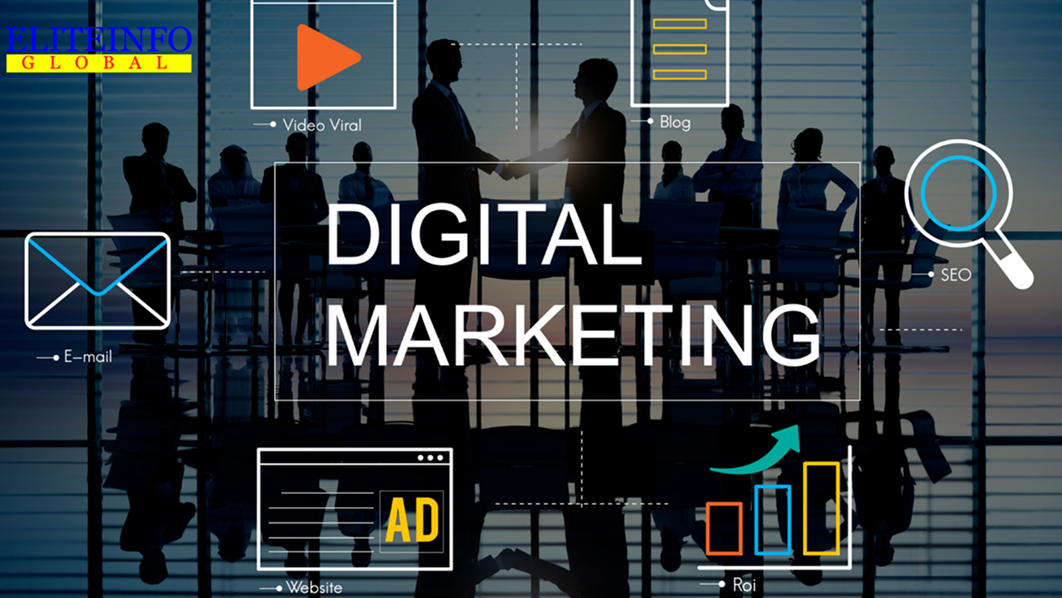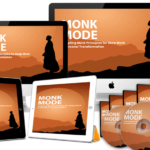What is Digital Marketing?
Digital marketing, also known as online marketing, is the promotion of brands and products using the internet and other digital channels. It encompasses a wide range of tactics, including email, social media, search engines, and mobile apps.
Digital Marketing is simply marketing in the digital era. It is a powerful strategy that involves using online channels and platforms to promote products and services. Digital marketing allows businesses to connect with potential customers and promote their products through various online platforms. It has become an essential strategy for businesses to increase brand awareness and engage with their target audiences.
In today’s digital world, it’s essential for businesses to have a strong online presence to reach their customers and stay competitive.
How Does Digital Marketing Work?
Digital marketing operates on the timeless principles of making the right offer at the right time and in the right place. In the digital era, that place is online.
Digital marketing works through various digital channels and strategies to engage with potential customers and nurture relationships with existing ones. Some of the key digital marketing channels include:
- Online Presence: Establishing a robust online presence in now a day is crucial. This involves being present on platforms where your audience spends their time.
- Content Marketing: Creating and sharing valuable content to attract and engage the targeted audience. Providing valuable content to keep your audience informed about industry news, address their challenges, and showcase how your products or services can solve their problems, how they will be benefitted.
- Social Media Marketing: Engagement with customers on social media platforms and using influencers to promote the brand.
- Search Engine Optimization (SEO): Optimizing content and websites to rank higher in search engine results.
- Email Marketing: Communicating with customers and prospects through targeted email campaigns.
- Paid Advertising: Using paid ads on search engines, social media, and other online platforms to drive traffic to the website. Using targeted advertising to drive paid traffic to your website, exposing potential customers to your offers.
- Account-Based Marketing (ABM): Targeting specific companies and decision-makers with tailored marketing strategies.
Benefits of Digital Marketing
Digital marketing offers numerous benefits for businesses, including:
- Increased brand visibility and awareness
- Improved customer engagement and interaction
- Higher conversion rates and sales
- Shortened buyer’s journey
- Enhanced customer loyalty and repeat business

Digital Marketing Strategies
To create an effective digital marketing strategy, businesses should:
- Understand their target audience and their needs.
- Audit and assess their current online presence and marketing efforts.
- Focus on the end result and align their marketing strategies with their core business goals.
- Leverage data and demographics to create a vigorous profile of their audience.
- Implementing a mix of digital marketing tactics, such as content marketing, social media marketing, SEO, and email marketing, to attract, nurture, and engage with their target audience.
Digital marketing is a vital component of any successful business strategy in today’s digital-driven world. By understanding the benefits of digital marketing and implementing a well-planned digital marketing strategy, businesses can effectively reach their target audience, build brand loyalty, and drive sales.
Why Digital Marketing?
Digital marketing is the promotion of brands and products to connect with potential customers using the internet and other forms of digital communications, such as email, social media, and web-based advertising. It offers several benefits to businesses, including:
- Reaching a large demographic: Digital marketing allows businesses to reach a wider customer base with less effort, connecting with customers across the world and in multiple time zones within a specific time.
- Cost efficiency: It is more cost-effective than traditional marketing methods, as it enables businesses to focus on targeting only the most likely customers and offers better value for money
- Flexibility: Digital marketing comes in various forms, giving businesses more opportunities to connect with their target audiences and adapt to changing market conditions
- Measurability: Unlike traditional advertising, digital marketing allows for real-time tracking of campaign performance, providing valuable insights into what works and what doesn’t
- Improved conversion rates: By targeting the right audience and optimizing content, digital marketing can help improve conversion rates and the quality of leads
- Engaging audiences: Digital marketing enables businesses to engage with customers at every stage of the customer journey, from awareness to purchase and beyond
- Geographic reach: Digital marketing allows businesses to expand their market reach and grow their business in ways that would have seemed impossible with traditional marketing methods
- Connection with customers: Digital marketing lets businesses communicate with their customers more effectively, providing a more personalized and tailored experience
- Adaptability: Digital marketing strategies can be easily adapted and changed, allowing businesses to stay competitive in an ever-evolving market
- Career opportunities:The digital marketing field is constantly evolving, offering numerous career opportunities and a high demand for skilled professionals.
Overall, digital marketing is essential for businesses looking to expand their reach, improve their marketing efforts, and stay competitive in the digital age.
Other important points as the benefits of accepting digital marketing as main advertising:
- Enhanced Awareness and Engagement: Establishing a strong digital presence makes it easier to create awareness and engagement with audiences in both before and after a sale.
- Customer Conversion and Retention: Digital marketing helps to convert new buyers into loyal and regular fans who not only buy more but also buy more frequently.
- Word-of-Mouth and Social Sharing: A vast digital presence starts word-of-mouth marketing and social sharing, introducing your brand’s thrust.
- Streamlined Buyer’s Journey: By presenting the right offers at the right time, digital marketing reduce the buyer’s journey, which leads to more efficient conversions.
Who: The Digital Marketers
A digital marketer is a professional who uses various digital platforms such as social media, search engines, websites, and online advertisements to promote products and services. They are responsible for enhancing brand awareness, driving traffic, and generating leads through digital channels. Digital marketers have a wide range of responsibilities like managing social media marketing, working on search engine optimization or search engine marketing efforts, overseeing email campaigns, and creating content for a company’s growth. They must have extensive knowledge of digital channels and measurable analytics to identify weaknesses and find ways to improve a company’s digital strategy. Skilled digital marketers require knowledge and qualifications that go beyond basic marketing.
What: The Components of Digital Marketing

Digital marketing is a broad term that encompasses various components and strategies to promote a product or service using digital channels. The major components of digital marketing includes:
- Search Engine Optimization (SEO): This involves optimizing websites and content to rank higher in search engine results, driving more organic traffic and increasing visibility
- Social Media Marketing (SMM): Digital marketers use popular social media platforms like Twitter, Instagram, and LinkedIn to connect with prospective customers, share content, and promote products or services
- Content Marketing: This component involves creating and distributing valuable, relevant, and consistent content to attract and engage a targeted audience, ultimately driving customers into action.
- Email Marketing: Digital marketers use email campaigns to communicate with customers and prospects, promoting products, services, and special offers
- Affiliate Marketing: This involves partnering with third-party affiliates who promote products or services in exchange for a commission on sales
- Pay-Per-Click (PPC) Advertising: Digital marketers use paid search ads to promote products or services on search engine results pages, paying a fee each time an ad is clicked
- Conversion Rate Optimization: This component focuses on improving the user experience and increasing the number of conversions (e.g., sales, sign-ups, or downloads) from digital marketing campaigns
- Analytics: Digital marketers use data and analytics tools to measure the performance of digital marketing campaigns, identify areas for improvement, and make data-driven decisions
- Mobile Marketing: This involves creating mobile-friendly content and campaigns required to the unique needs and preferences of mobile users
- Marketing Automation: Digital marketers use marketing automation tools to streamline, automate, and measure marketing tasks and workflows, improving efficiency and customer engagement
- Web Design: Creating visually appealing and user-friendly websites is crucial for effective digital marketing, as it directly impacts user experience and conversion rates
These components can be combined and optimized to create a comprehensive digital marketing strategy that aligns with business goals and targets the right audience










